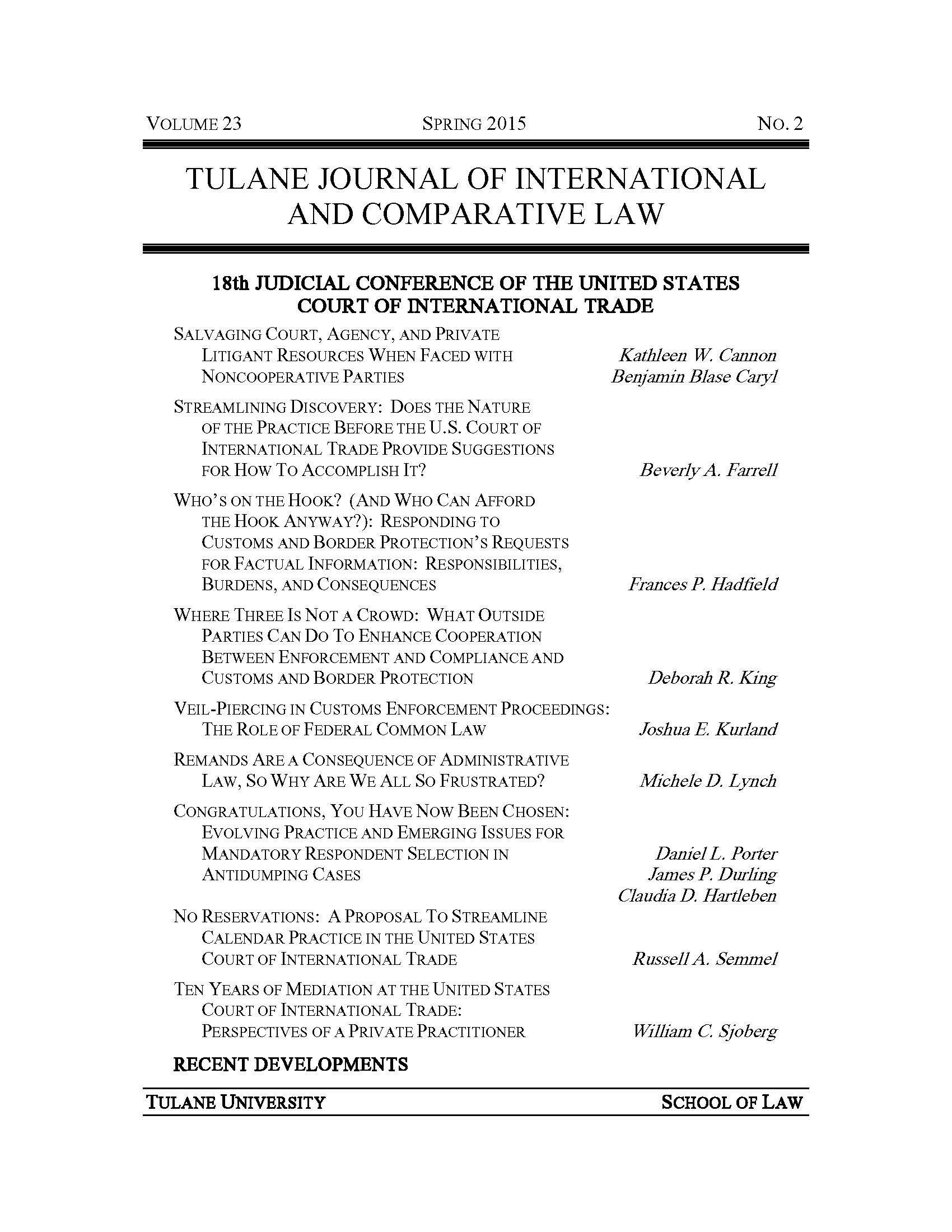No Reservations: A Proposal To Streamline Calendar Practice in the United States Court of International Trade
Abstract
The Reserve Calendar of the United States Court of International Trade has long been the
bane of litigants and the court alike. At best, it burdens the bar to draft, the government to review,
the clerk to grant, and the plaintiffs to fund motion practice that does nothing more than to
perpetuate a status quo that, but for the calendar deadlines, would remain undisturbed; at worst,
plaintiffs and the government may engage in extended briefing and argument before the court
concerning relatively banal issues, an effort that distracts from the substance of the case, drags out
resolution of the dispute, and needlessly increases litigation costs and expends judicial resources.
In many ways, the current Reserve Calendar is anathema to Rule 1 of the court, which explains that
the rules “should be construed and administered to secure the just, speedy, and inexpensive
determination of every action and proceeding.” 1
But there is one simple cure for the Reserve Calendar: to eliminate it. The historical
reasons for the Reserve Calendar no longer exist, and time has shown that the Reserve Calendar is
more trouble than it is worth. To accomplish this reform, this Article proposes amendments to the
court’s rules guiding the entire calendar system by consolidating the Reserve, Suspension, and
Suspension Disposition Calendars into a single calendar governing all affected actions.
